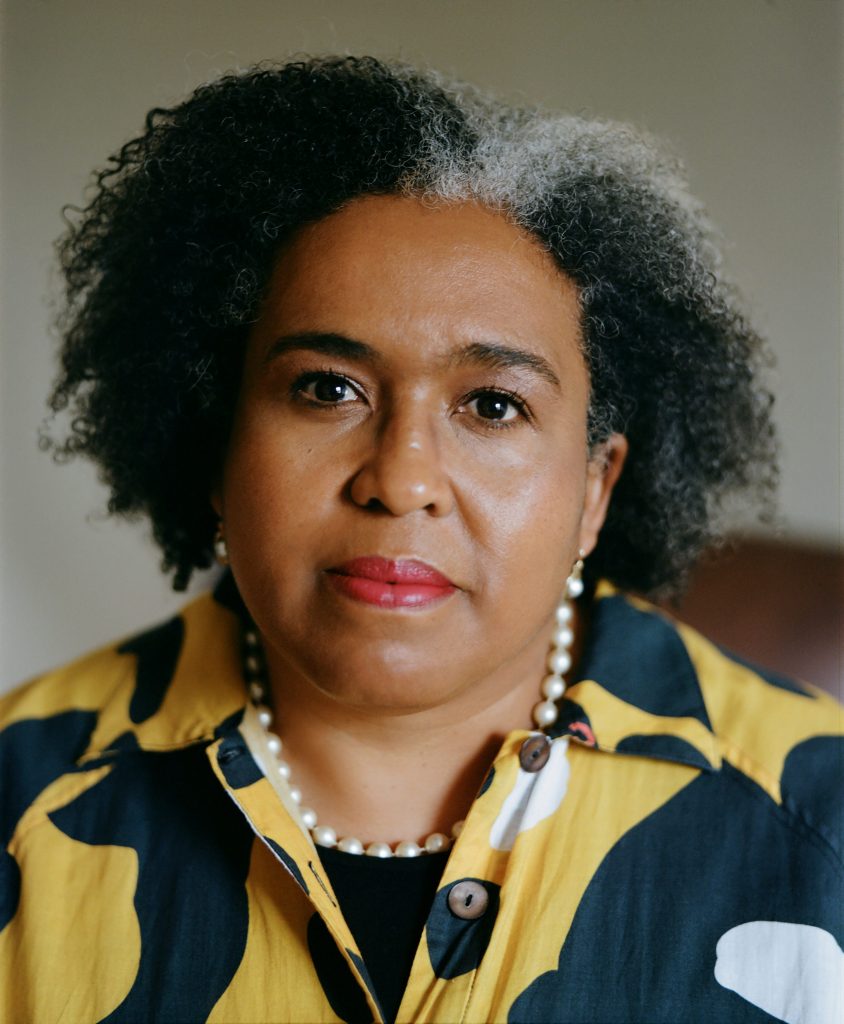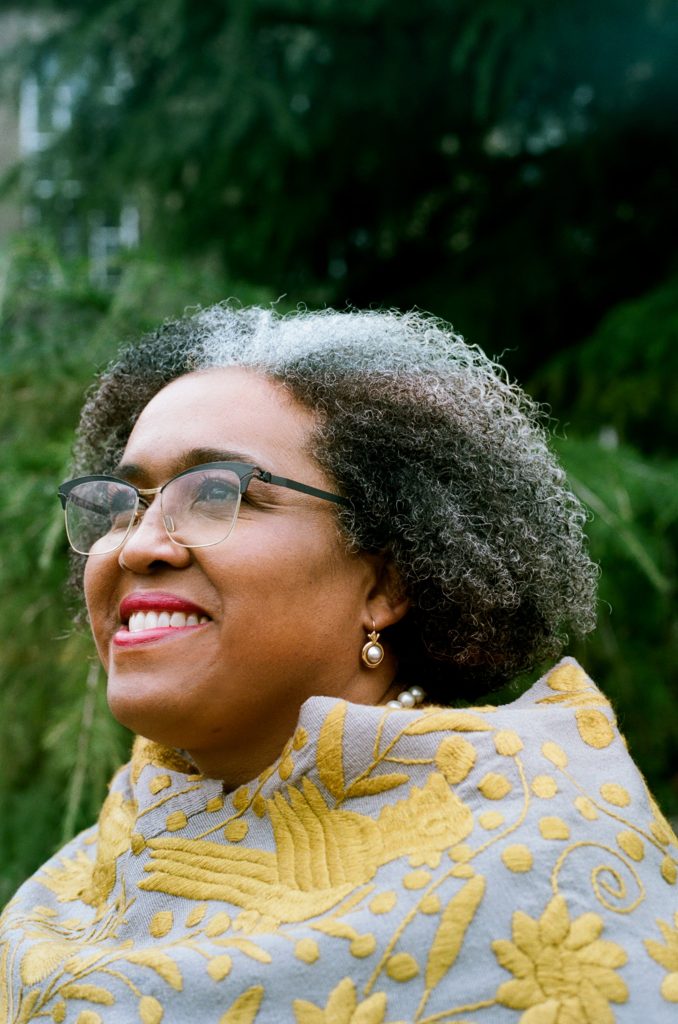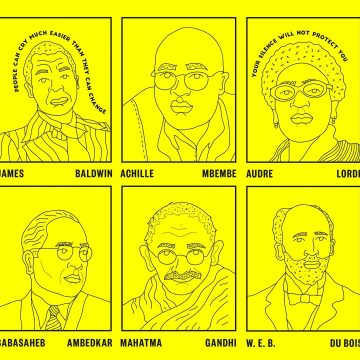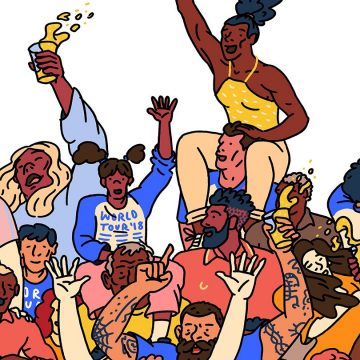A world to you without oppression
Imagine, says Dr Mónica Moreno Figueroa, what your life would be like without sexism, racism, fat oppression and class distinction.
Dr Mónica Moreno Figueroa says that growing up in Mexico in the 1980s and 90s was sometimes a rather puzzling experience. Although most of her family and friendship group were light-skinned mestizo (mixed race), she looked Black. And while nobody talked about racism, racial injustice was everywhere. She was determined to do something about it, but didn’t know where to start.
When racism is not acknowledged, those who suffer from it think that it only happens to them
Debates about race and racism had been absent from public discourse in Mexico for much of the 20th and into the early 21st centuries; it is very different from the UK and the USA, where racism is frequently mentioned in the media. Even though Indigenous struggles were highlighted, particularly after the 1994 Zapatista Army of National Liberation uprising, the issues were discussed mostly within an ethnic framework.
Racism was omnipresent for Indigenous and Black people, as well as for the mestizo majority, yet it remained unnamed. “When racism is not acknowledged,” says Moreno Figueroa, “those who suffer from it think that it only happens to them; it becomes individualised.” Even though the conversation has shifted and there is much more openness about the issues in the 2020s, there remains a strong tendency to think about racism merely in terms of prejudice and discrimination, rather than as a form of structural oppression and inequality.
Moreno Figueroa says it’s hard to get people to open up about an experience when no vocabulary exists to describe it. “People tell me: ‘I just felt odd.’ But where do you go with ‘odd’?” One of the words that best fits the experiences of racism that Moreno Figueroa researches is ‘slightedness’ – feeling slighted. Slightedness is different to being offended: it is akin to being dismissed in a way that is not quite clear. In Mexico, this slightedness occurs as frequently in family and friendship settings as it does with strangers.
So, Moreno Figueroa’s first task was to analyse what racism in Mexico actually means, and what it does. As Associate Professor in Sociology and a Fellow in Social Sciences at Downing College, she has focused on the qualities of racism in Mexico and Latin America: how it feels for those who suffer oppression, what it does in their everyday lives and the emotions it provokes.

The roots of racism in Mexico go back to the experience of Spanish and Portuguese colonialisation – which, Moreno Figueroa points out, was very different from the British colonial experience. The racial project that was developed by the Spanish and Portuguese colonisers allowed racial mixing amid colonial violence, and Mexican society developed and grew from this.
That mix is at the core of how Mexicans experience racism today. “It became the national way of thinking about who we are as Mexican citizens: we are all mixed, but the mixed subject who looks the whitest is the better subject. The lighter you look, the better. Whether people are considered lighter or darker is contextual and relative. In a family, you might be the lightest. In the workplace, you might be the darkest. So, people are constantly repositioning themselves and receiving (or losing) benefits because of their skin colour and physical features. It’s a very confusing experience.”
As well as covering everyday racism in Mexico, Moreno Figueroa’s research examines how racism and anti-racism initiatives operate at the state and institutional levels. Between 2017 and 2019, she co-led a £1m Economic and Social Research Council project, together with Professor Peter Wade from the University of Manchester, investigating anti-racist practices and discourses in Brazil, Colombia, Ecuador and Mexico. This year, in a study funded by a British Academy Mid-Career Fellowship, she is examining internalised racism, specifically how the cultural and emotional politics of defensiveness and resentment become key obstacles for organising and transformation.
Moreno Figueroa is not content to just research experiences of racism: for her, academia must be engaged and engaging.
But Moreno Figueroa is not content to just research experiences of racism: for her, academia must be engaged and engaging. In 2011, she co-founded the Collective COPERA (Colectivo para Eliminar el Racismo en México) which she co-leads with Emiko Saldivar Tanaka and Judith Bautista Pérez. COPERA now includes a dozen academics and activists working together to develop effective ways of communicating and introducing people to racism, as well as supporting other organisations in developing strong anti-racist agendas for their work. Slowly, their message is getting through: “In 2022, Arturo Zaldívar Lelo de Larrea, President of Mexico’s Supreme Court of Justice, gave a speech using our language,” says Moreno Figueroa. “He talked about everyday racism, and the need to have effective laws around it. I thought, ‘Wow, it’s happening!’ I felt so encouraged.”
When she came to Cambridge in 2014 with a remit to develop the teaching of race and racism, Moreno Figueroa assumed she would just be doing “the academic stuff”. But the I Too Am Cambridge campaign – where students shared their experience of racism in the University – had just started (following I Too Am Harvard). Then came calls from students to decolonise the curriculum at Cambridge and, together with colleagues Arathi Sriprakash, Manali Desai and Adam Branch, she set up a seminar series at CRASSH to discuss the issues. Along with fellow sociologist Ella McPherson, Moreno Figueroa then developed the End Everyday Racism project, a platform to share experiences and monitor racism in higher education. She also acted as Race Equality Co-Champion from 2017 to 2021, and was a member of the Legacies of Enslavement Advisory Board. Since Moreno Figueroa arrived in Cambridge, awareness has massively increased. “It has been a very interesting time,” she says.

Moreno Figueroa’s classroom has also become a place to explore ways of talking about racism and dealing with its emotional impact. “Racism is a system that dehumanises everybody,” she says. “It makes us lose sight of people’s humanity and dignity.” In 2016, she won the Pilkington Teaching Prize for her excellence in teaching, where she includes “listening moments” – a methodology that allows students to talk about how they feel when they see or listen to highly distressing information, such as a video depicting lynchings in the USA that she uses in her lectures on racism. Each student gets three minutes to talk about their reaction, and the other person has to listen attentively without interrupting the speaker.
“Here we have white people, looking at the bodies of black people, hanged and burned. And here we are as spectators, looking at white people looking at black people. You can’t just stop the video and say: ‘OK, so that happened in the 1930s’ and continue as if it had no emotional impact on students.”
We make space for students to connect, personally, with the information and with each other.
These “listening moments” have proved to be a simple and extraordinarily powerful process. “You talk about your feelings, elaborate, reconsider – and then you listen. In that process, you might feel upset; you might connect things you haven’t connected before. You start thinking. You also connect with the person you are sharing and listening with. We make space for students to connect, personally, with the information and with each other. It makes space for new thinking, beyond stereotypes and fears.”
Moreno Figueroa and her colleagues in the Department of Sociology have developed an exciting proposal to establish a new Centre for the Study of Race, Anti-Racism, Inequality and Social Exclusion (RAISE) at Cambridge, and talks with a US-based philanthropic organisation for a first large donation are progressing well. Its aim is to help join the dots between disparate projects on racism across the globe, and use this research to develop solutions and possibilities. The Centre will work with racially minoritised groups, indigenous communities and anti-racist organisations who have a long history of advocacy within communities, to achieve transformation on the ground. Plans include a scheme for visiting and postdoctoral researchers, a digital archive and curriculum development, and will bring a unique transnational aspect to studies of race, anti-racism, inequality and social exclusion.
Moreno Figueroa continues to look for “moments of intervention”. Even her email sign-off represents a chance to spread her message: And a world without oppression to you. “It’s like a provocation, I guess,” she says. “Imagine what your life would be like if there was no sexism, racism, fat oppression or class distinctions. What marvels could we all be doing?”
If you are interested in supporting the proposed RAISE Centre, please contact Dr Mónica Moreno Figueroa on mm2051@cam.ac.uk







